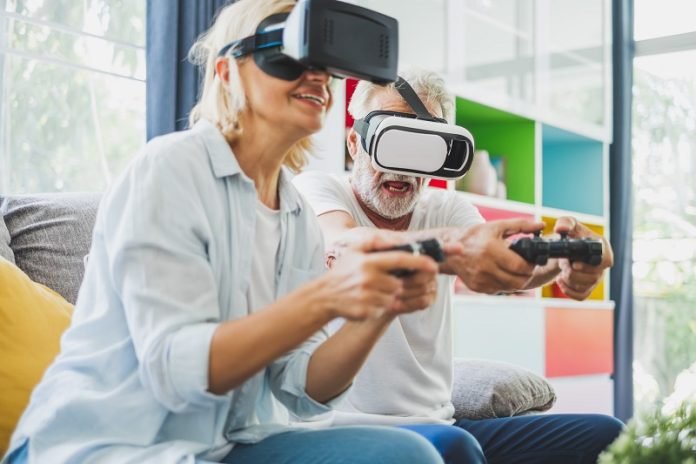
Virtual Reality (VR) and Augmented Reality (AR) headsets promise a futuristic internet experience.
Imagine diving into digital worlds, playing advanced games, hanging out with friends, or attending work meetings – all by simply wearing a special headset.
But researchers have found a serious problem: these headsets can be hacked, and our actions can be spied on.
What’s the Big Deal?
Think about it this way: When using these headsets, you might move your hands, nod your head, or even type messages in the air on a virtual keyboard.
Facebook and other big companies are working on such technologies where you can explore and interact in these digital spaces.
But a study from the University of California, Riverside, says that hackers can secretly watch and record what we do in these spaces.
Professors Jiasi Chen and Nael Abu-Ghazaleh, along with their team, found that malicious software, or “spyware,” can track our movements in VR and AR. This spyware can translate our movements into words with a scary accuracy of 90% or more.
Let’s say you’re playing a game in VR, and you decide to take a quick break to check your Facebook messages.
You “type” your password in the air on a virtual keyboard that the headset creates for you. Hackers could use spyware to see this and steal your password.
They could also watch your actions during a virtual business meeting and learn confidential company secrets.
What Next?
The good news is the researchers didn’t just find these problems and leave them be.
They informed the companies about their findings, hoping they will fix these issues before more people start using VR and AR headsets regularly.
In simple words: VR and AR are exciting and promise a whole new internet experience. But, like all new technologies, they come with risks.
As we step into these new digital worlds, we should also be careful and stay aware of the potential dangers.
The researchers wrote two papers on this issue.
“It’s all in your head(set): Side-channel attacks on AR/VR systems.” This paper tells us how hackers can track our hand gestures, what we say, and what we type on the virtual keyboard. The accuracy is above 90%.
This means, if you’re typing something or making a specific gesture, hackers have a 9 out of 10 chance of understanding it! Also, if someone is near you while you use the headset, spies can tell how far they are – up to about 4 inches accuracy.
“Going through the motions: AR/VR keylogging from user head motions.” This paper goes deeper into the danger of using the virtual keyboard.
Just by watching how our head moves when we “type” in VR, spies can guess the exact words we’re typing. The team created a system called TyPose that can figure out what a person is typing by just looking at their head movements.
Follow us on Twitter for more articles about this topic.
Source: UC Riverside.



